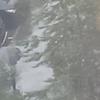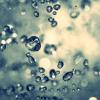Just wanted to post some new finds (to me at least) about the MAO inhibiting activity of some common Traditional Chinese herbs. I'm not the most skilled at finding flaws in studies or in translating dosages from rats to humans, so feel free to jump in and critique as needed.
Affective Disorders, Monoamine Oxidase and Chinese herbs
Deer Antler
Lu Rong (Deer Antler)
Within 6 days, accelerated aged mice and normal mice were given Lu Rong extract via p.o. once every day, and the MAO-B in the liver and brain tissues of mice was obviously inhibited. In vitro experiments further confirmed that normal butyl alcohol and ether extract of Lu Rong inhibited MAO activity, and the main active ingredient in the normal butyl alcohol extract that could inhibit MAO activity was hypoxanthine.
A few more studies in there on Deer Antler.
Cordyceps
Dong Chong Xia Cao (Cordyceps)
In this study, radioactive isotope method was used to observe the influence of 3 kinds of mycelia of Cordyceps over MAO-B activity of rats and mice. The results showed that three kinds of mycelia of Cordyceps all had significant inhibitory effect on the activity of MAO-B in the brains of rats and mice. When the concentration was 1:1, its inhibitory effect over MAO- B was over 70%; while the drug concentration was 1:10, the inhibitory effect over MAO-B was over 30%.
––She Min. The influence of mycelia of Cordyceps over MAO-B in the brains of mice and rats. Chinese traditional and herbal drugs. 1991; 22(5): 218~219
Gecko
Ge Jie
Ge Jie had significant inhibitory effect on MAO-B in rat brain (P<0.01); meanwhile, it could also obviously lower the concentration of FSH (P<0.05), and significantly increase the concentration of estradiol in the blood of rats. The author believed that Ge Jie could obviously improve the function of the hypothalamus-pituitary-gonad axis.
––Zhou Xiaomian, et al. The influence of Ge Jie over MAO-B in the brain of rats and FSH & estradiol in blood. Learned journal of No. 1 Military Medicine University, 1994, 14 (1):42.
Surprisingly gynostemma also has some MAOI activity.
Jiao Gu Lan
This article studied the effect of gypenosides on MAO and Na/K-ATPase activities in brain tissues of aging mice. In the study, models of aging mice were prepared by continuous post-orbital injection of 120mg/kg D-galactose for a month, then the effects of gypenosides on MAO and Na/K-ATPase activities in brain tissues were investigated. It was found that MAO activity was increased and Na/K-ATPase activity was decreased in brain tissues of aging mice models significantly; and these effects were reversible respectively by gypenosides ig at the dosage of 75 and 150mg/kg. The result that gypenosides could invert the changes of MAO and Na/K-ATPase activities in brain tissues of aging mice, may provide a further explanation of the anti-ageing mechanism of gypenosides in molecule enzymology.
––Gong Guoqing, et al. Effects of gypenosides on monoamine oxidase and Na/K-ATPase activities in brain tissues of aging mice. Chinese traditional and herbal drugs, 2001; 32(5):426~427
Also, three studies in there on He Shou Wu's MAOI activity and ability to increase SOD as many here are likely already aware, as well as some studies on Reishi, Ginseng and a few other herbs.

















































